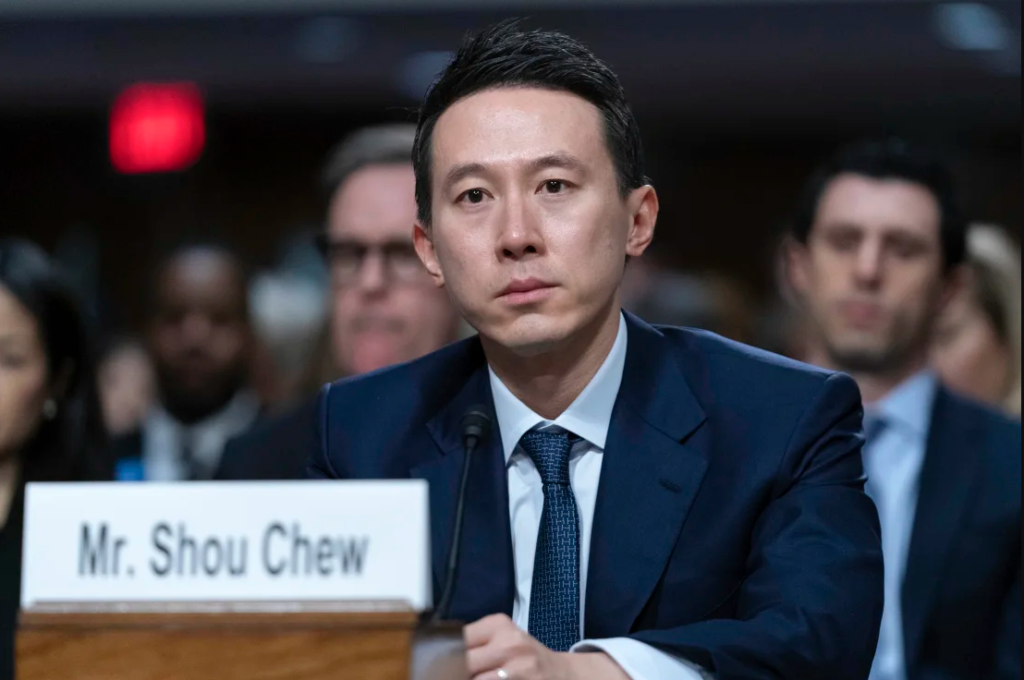|
Getting your Trinity Audio player ready...
|
TikTok Pushes Back: Denies Allegations
In response to the lawsuits, TikTok issued a statement denying the allegations and expressing disappointment in the states’ decision to sue rather than seek collaborative solutions. The company emphasized that it offers several safety features aimed at protecting younger users. For instance, screen time limits are automatically set for users under 16, and the app includes privacy settings designed to minimize exposure to harmful content.
“We strongly disagree with the claims, many of which we believe to be inaccurate and misleading,” TikTok said in a statement. “We are disappointed that the states have chosen litigation over working with us on constructive solutions to industrywide challenges.”
However, this response has done little to quell the concerns of lawmakers and advocacy groups who believe TikTok’s efforts fall short. The lawsuits come amid a broader push in the U.S. for more stringent regulation of social media platforms and their impact on younger audiences.
Additional Legal Battles: Privacy and Exploitation Concerns
The lawsuits aren’t just about addiction. Washington D.C. Attorney General Brian Schwalb has accused TikTok of running an unlicensed money transmission business through its live-streaming and virtual currency features. This adds another layer of complexity to the legal challenges TikTok is facing in the U.S.
Schwalb was particularly scathing in his remarks about TikTok’s platform, describing it as “dangerous by design” and likening its live-streaming features to a “virtual strip club with no age restrictions.” He argued that TikTok’s virtual currency system could enable the sexual exploitation of underage users, a claim that significantly ups the stakes of these legal proceedings.
A Growing Wave of Lawsuits: TikTok’s Troubled U.S. History
This latest round of lawsuits follows a growing list of legal challenges TikTok has faced in the United States. In August, the U.S. Department of Justice filed a lawsuit accusing the platform of failing to protect children’s privacy. Prior to that, states like Utah and Texas sued TikTok over similar concerns related to child safety and mental health impacts.
Earlier investigations by eight states, including California and Massachusetts, looked into the platform’s effects on young people, with a specific focus on privacy and content moderation. These states have now joined the broader coalition of states suing TikTok, increasing the pressure on the platform and its parent company, ByteDance, which is based in China.
ByteDance has also been battling against a potential U.S. law that could result in a nationwide ban on TikTok. The app’s Chinese ownership has long been a point of contention, with lawmakers and regulators concerned about data privacy and the potential for misuse by foreign governments.
What’s Next for TikTok in the U.S.?
As these legal battles unfold, the future of TikTok in the U.S. remains uncertain. While the app remains wildly popular among teens and young adults, mounting legal challenges and regulatory scrutiny could eventually force the platform to make significant changes to its business model and safety features.
The outcome of these lawsuits may also have broader implications for the tech industry as a whole, particularly in how platforms are designed and regulated. If the states succeed in their efforts, it could pave the way for stricter regulations across the social media landscape, potentially affecting platforms like Instagram, YouTube, and Snapchat.
For now, TikTok will likely continue to defend itself in court, but the pressure from both state regulators and federal authorities is unlikely to ease any time soon.
Conclusion: The Road Ahead for TikTok
The lawsuits filed by 13 U.S. states and D.C. mark another chapter in TikTok’s ongoing legal and regulatory struggles in the U.S. With accusations of fostering addictive behavior and failing to protect children, the popular social media app is facing increased scrutiny from lawmakers, mental health advocates, and regulators alike.
TikTok’s response — denying the claims and emphasizing its safety features — may not be enough to quell the growing chorus of criticism. As the lawsuits move forward, the app’s future in the U.S. hangs in the balance, and the case could have far-reaching consequences for the tech industry’s approach to user safety, particularly for younger audiences.
